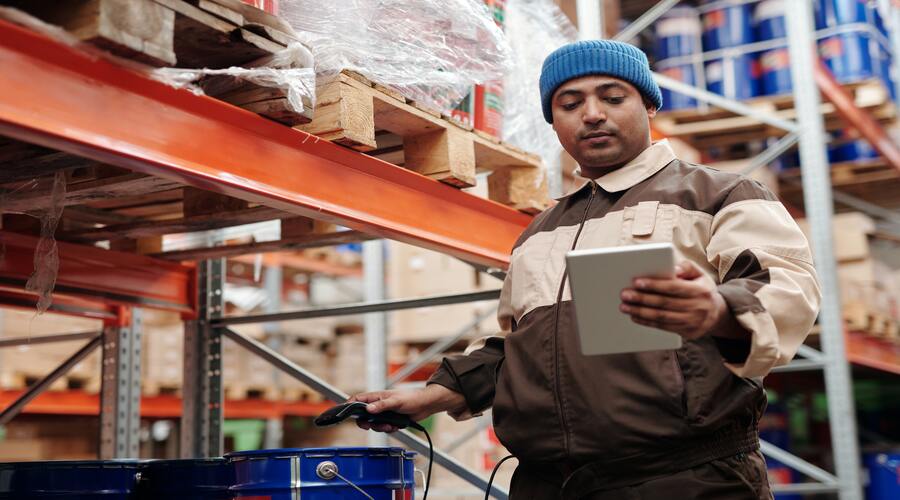
A warehouse may be defined as a place used for the storage or accumulation of goods. In most situations, workers can't locate the goods in the warehouse due to the presence of huge materials and manually it is very time-consuming for them to find the desired product.
A warehouse management system is made to get rid of this dilemma.
Nevertheless, a smart warehouse is not merely about automation but also the collaboration between machines and people. Due to the Internet of things, a plethora of moving parts, for example, products, devices, and workers, in a smart warehouse can be merely connected and handled in one single network.
One of the primary challenges about warehouse functions where thousands tend to be handled daily is a large number of products, materials, equipment, and workers tangled up in operations.
The Internet of things supplies a revolutionary answer in that it enables the connection, monitoring, and handling of unlimited data points through devices in a central warehouse management system.
Technology plays the leading role in increasing warehouse output. It utilizes detectors and robots, taking measurements and collecting data from numerous data points.
Now you must be wondering how the proper implementation of IoT can help in warehouse management, so let’s take a look at what role IoT plays in warehouse management.
Companies install IoT sensors inside their warehouses to observe the motion and use of the material as well as other assets within your facility. You'll be able to fit these detectors on shelves to transfer stock information to your management system. IoT helps eradicate costly and time-wasting errors by making sure inventory levels and equipment locations are known.
Intelligent warehouse equipment like shelf sensors and assets lets you discover and handle your inventory. You can take preventative steps in case of a disaster. If a product is out of stock, for example, you will be informed and can take action appropriately. IoT warehouse management devices additionally allow you to transfer or return a cargo as you have accurate asset data, location, condition, and much more.
You can easily forecast what exactly is required and what does not work and then schedule your inventory. This helps you optimize your warehouse area and reduce the time needed to locate and collect your warehouses.
Another useful application of IoT in warehousing is wearable technology. Businesses may use these devices to collect information about their staff at all points in the warehouse to boost efficiency and promote safety.
IoT insights will help robotic automation in warehouses be much more efficient. For example, Lids, a fashion business, utilized IoT robotics to complete tasks previously performed by employees and minimized individual effort.
If you are concerned about the Internet of things that is worthwhile in the warehouse, here are the known reasons for the technology you need to take into account as fast as possible:
The IoT warehouse management provides info on real-time assets such as location, transportation, condition, packaging, and routing. Instant updates and monitoring assure no injury to the goods. It also supports inventory management. To give even more transparency, IoT devices gather information from the assets which you might share with consumers.
A clever arrangement of racks, containers, and pallets helps to find and manage the products associated with the warehouse. If your item is off-stock or even the quality of the things is affected by circumstances, the administration should always be informed certainly. It also helps with inventory planning based on product demand.
IoT warehouse solutions assist companies to reduce risks, downtime and avoid accidents by monitoring conditions, and predictive maintenance to find out early apparent symptoms of equipment defects. As it's planned and optimized, intelligent warehouses tend to be less likely to waste sources, increasing revenues and decreasing costs of management.
IoT-based Warehouse Management Systems provide immediate, on-demand support for workers who assist in carrying out numerous different warehousing tasks a day. Wearables assist you to navigate the warehouse, detecting the correct items, and setting jobs as per your priority.
Smart warehousing provides the possibility for a company to profitably optimize its operations. Because of this, it is crucial to accept this trend to ensure an organization remains competitive in the coming days. For this reason, management should consider uniting with trustable technology partners to simply take their warehouse operations to the next level. Contact 13SQFT.COM to create a smart warehousing solution.
POSTED BY
Ishika Adhana
Digital Marketing Executive